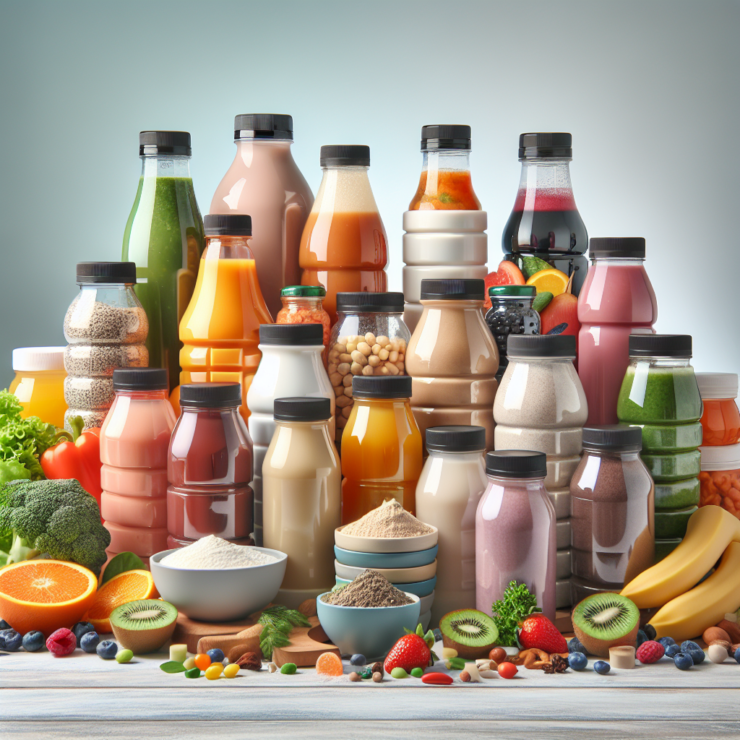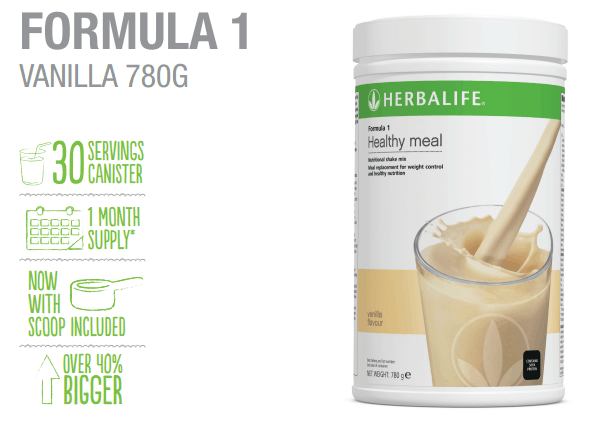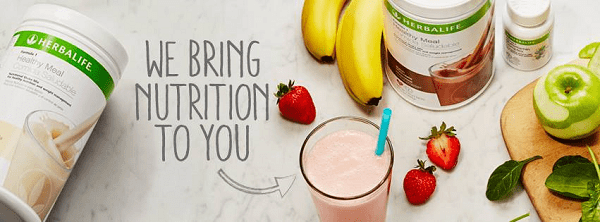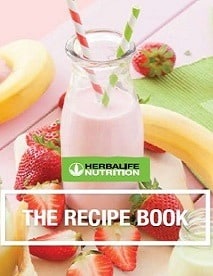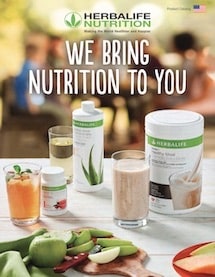Understanding Meal Replacement Drinks
When it comes to achieving a healthy weight, meal replacement drinks can be a valuable tool. In this section, we will explore what meal replacement drinks are, the benefits they offer, and how they aid in weight loss.
What Are Meal Replacement Drinks?
Meal replacement drinks are convenient and pre-packaged beverages that are designed to replace a full meal. These drinks are typically fortified with essential vitamins, minerals, and macronutrients to provide a well-rounded nutritional profile. They are available in various forms, including shakes, smoothies, and powders that can be mixed with water or other liquids.
Meal replacement drinks are specifically formulated to offer a balanced combination of proteins, carbohydrates, and fats, along with other essential nutrients. They serve as a quick and convenient alternative to traditional meals, particularly for those with busy lifestyles or limited time for meal preparation.
Benefits of Using Meal Replacement Drinks
Meal replacement drinks offer several benefits that can support weight loss efforts. Some of the key advantages include:
- Convenience: Meal replacement drinks are quick and easy to prepare, making them a convenient option for individuals on the go or those who have limited access to healthy meal options.
- Portion Control: These drinks come in pre-measured portions, which helps in controlling calorie intake and preventing overeating.
- Balanced Nutrition: Meal replacement drinks are formulated to provide a balance of macronutrients, vitamins, and minerals. This ensures that your body receives the necessary nutrients while maintaining a calorie deficit for weight loss.
- Calorie Control: Unlike regular meals, meal replacement drinks have a predetermined calorie content, making it easier to track and manage daily calorie intake.
How Meal Replacement Drinks Aid in Weight Loss
Meal replacement drinks can aid in weight loss in several ways:
- Reduced Calorie Intake: By replacing a high-calorie meal with a lower-calorie meal replacement drink, you can create a calorie deficit, which is essential for weight loss.
- Portion Control: The pre-portioned nature of meal replacement drinks helps to control portion sizes and prevent overeating.
- Nutrient Density: Meal replacement drinks are designed to provide a comprehensive mix of nutrients, ensuring that you receive essential vitamins, minerals, and macronutrients while consuming fewer calories.
- Sustained Fullness: Meal replacement drinks often contain a good amount of protein and fiber, which can help you feel fuller for longer, reducing the temptation to snack on unhealthy foods.
- Simplified Meal Planning: Including meal replacement drinks in your weight loss plan simplifies meal planning and removes the need for calorie counting or complicated meal preparation.
Understanding the concept of meal replacement drinks and their benefits sets the foundation for exploring different types and choosing the right one to support your weight loss journey. Keep in mind that meal replacement drinks should be used as part of a well-rounded and balanced weight loss plan, which includes regular physical activity and a focus on whole, nutritious foods.
Key Considerations for Weight Loss
When choosing meal replacement drinks for weight loss, there are several key considerations to keep in mind. These factors play a crucial role in ensuring that the meal replacement drink supports your weight loss goals effectively.
Balanced Nutrition
A balanced nutrition profile is essential in a meal replacement drink for weight loss. It should provide a combination of macronutrients (carbohydrates, protein, and fats) as well as essential vitamins and minerals. This ensures that you’re getting a well-rounded meal replacement that can substitute for a complete meal.
| Nutrient | Recommended Daily Intake |
|---|---|
| Carbohydrates | 45-65% of total calories |
| Protein | 10-35% of total calories |
| Fat | 20-35% of total calories |
Calorie Control
Calorie control is a key aspect of weight loss. The meal replacement drink should have a controlled calorie content that aligns with your weight loss goals. The calorie content will vary depending on the brand and type of meal replacement drink. Opt for a drink that provides an appropriate calorie level for your needs and weight loss objectives.
| Meal Replacement Drink | Calories per Serving |
|---|---|
| Option 1 | 200 |
| Option 2 | 250 |
| Option 3 | 300 |
Protein Content
Protein plays a crucial role in weight loss as it helps to promote satiety and maintain muscle mass. Look for meal replacement drinks that have an adequate protein content. The recommended protein intake for weight loss is around 0.8 grams to 1 gram per kilogram of body weight.
| Meal Replacement Drink | Protein per Serving (g) |
|---|---|
| Option 1 | 15 |
| Option 2 | 20 |
| Option 3 | 25 |
Added Nutrients and Fiber
In addition to macronutrients, it’s important to consider the presence of added nutrients and fiber in meal replacement drinks. These additional components can provide important vitamins, minerals, and dietary fiber, which contribute to overall health and satiety.
| Nutrient/Fiber | Recommended Daily Intake |
|---|---|
| Vitamin A | 700 – 900 micrograms |
| Vitamin C | 75 – 90 milligrams |
| Calcium | 1000 – 1300 milligrams |
| Iron | 8 – 18 milligrams |
| Dietary Fiber | 25 – 38 grams |
By considering these key factors, you can select a meal replacement drink that aligns with your weight loss goals and provides the necessary nutrients for a balanced diet. Remember to consult with a healthcare professional or a registered dietitian to determine the most suitable options based on your specific needs and preferences.
Exploring Different Types of Meal Replacement Drinks
When it comes to meal replacement drinks for weight loss, there are various options available to suit different dietary preferences and goals. Let’s take a closer look at three common types: protein-based meal replacement drinks, plant-based meal replacement drinks, and low-calorie meal replacement drinks.
Protein-Based Meal Replacement Drinks
Protein-based meal replacement drinks are a popular choice among individuals aiming to lose weight. These drinks typically contain a higher protein content, which can help promote feelings of fullness and support muscle maintenance. Protein has a higher thermic effect, meaning it requires more energy to digest, which can contribute to overall calorie burn.
| Protein-Based Meal Replacement Drink | Protein Content (g) |
|---|---|
| Brand A | 20 |
| Brand B | 25 |
| Brand C | 30 |
It’s important to note that the protein content may vary among different brands and products. When choosing a protein-based meal replacement drink, consider the protein content and ensure it aligns with your dietary needs and preferences.
Plant-Based Meal Replacement Drinks
For individuals following a vegetarian or vegan lifestyle, plant-based meal replacement drinks offer a viable option. These drinks are typically made from plant-based protein sources such as pea, soy, or hemp. Plant-based proteins can provide essential amino acids while being lower in saturated fat compared to some animal-based proteins.
| Plant-Based Meal Replacement Drink | Protein Content (g) |
|---|---|
| Brand X | 15 |
| Brand Y | 18 |
| Brand Z | 22 |
When selecting a plant-based meal replacement drink, consider the protein content and ensure it meets your individual requirements.
Low-Calorie Meal Replacement Drinks
Low-calorie meal replacement drinks are designed to provide essential nutrients while keeping calorie intake in check. These drinks are often lower in total calories compared to regular meal replacement drinks, making them suitable for individuals aiming for weight loss.
| Low-Calorie Meal Replacement Drink | Calorie Content |
|---|---|
| Brand P | 150 |
| Brand Q | 180 |
| Brand R | 200 |
The calorie content may vary depending on the brand and specific product. When opting for low-calorie meal replacement drinks, it’s important to monitor your overall calorie intake and ensure it aligns with your weight loss goals.
By exploring the different types of meal replacement drinks available, you can choose the one that best fits your dietary needs, taste preferences, and weight loss objectives. It’s essential to read labels and ingredients, consult with a healthcare professional if needed, and consider your personal preferences to make an informed decision. Remember, meal replacement drinks should be incorporated into a comprehensive weight loss plan that includes a balanced diet, regular physical activity, and mindful eating habits.
Choosing the Right Meal Replacement Drink
When it comes to selecting the ideal meal replacement drink for weight loss, there are several factors to consider. By carefully assessing the labels, consulting with a healthcare professional, and taking personal preferences into account, you can make an informed choice that aligns with your goals and preferences.
Reading Labels and Ingredients
To make an educated decision about meal replacement drinks, it’s essential to read the labels and understand the ingredients. Look for drinks that provide a balanced mix of macronutrients, including protein, carbohydrates, and healthy fats. Keep an eye out for added sugars and artificial additives, as these can hinder your weight loss efforts.
Pay attention to the serving size and the calorie content of the meal replacement drink. A lower calorie count can be beneficial for weight loss, but it’s important to ensure that the drink still provides sufficient nutrition. Look for options that offer a blend of vitamins, minerals, and fiber to support overall health.
Consulting with a Healthcare Professional
Before incorporating meal replacement drinks into your weight loss plan, it’s advisable to consult with a healthcare professional, such as a registered dietitian or your primary care physician. They can provide personalized guidance based on your unique needs, medical history, and any specific dietary considerations.
A healthcare professional can help you determine whether meal replacement drinks are suitable for you and recommend the most appropriate options. They can also offer advice on portion sizes, frequency of use, and how to integrate the drinks into a balanced diet.
Personal Preferences and Taste
Since meal replacement drinks will become a part of your daily routine, it’s crucial to consider your personal preferences and taste. Experiment with different flavors and brands to find the ones that you enjoy the most. Some individuals prefer ready-to-drink options, while others prefer powdered mixes that can be customized with their choice of liquid.
Consider the texture of the drinks as well. Some people prefer smooth and creamy textures, while others may prefer more textured drinks with added bits of fruits or grains. Remember that enjoying the taste and texture of the meal replacement drink can contribute to your overall satisfaction and adherence to your weight loss plan.
By thoroughly examining the labels and ingredients, seeking input from healthcare professionals, and considering your personal preferences, you can select a meal replacement drink that aligns with your weight loss goals and supports your nutritional needs. Remember that meal replacement drinks should be viewed as a tool to supplement a healthy and balanced diet, rather than a complete substitute for whole foods.
Incorporating Meal Replacement Drinks into Your Weight Loss Plan
When it comes to using meal replacement drinks for weight loss, it’s important to have a plan in place to ensure you’re making the most of these convenient and nutritious options. Here are some key considerations for incorporating meal replacement drinks into your weight loss plan:
Meal Replacement Drink Schedule
To effectively incorporate meal replacement drinks into your weight loss plan, it’s helpful to establish a schedule. This will provide structure and ensure you’re consuming the right amount of calories and nutrients throughout the day.
Consider replacing one or two meals with a meal replacement drink, depending on your individual needs and preferences. For example, you might choose to have a meal replacement drink for breakfast and another for lunch. Alternatively, you could replace dinner with a meal replacement drink if that aligns better with your lifestyle.
Remember to listen to your body and adjust the schedule as needed. If you find that you’re hungry between meals, you may need to incorporate a healthy snack or adjust the timing of your meal replacement drinks.
Combining with Healthy Whole Foods
While meal replacement drinks can be a convenient option for weight loss, it’s important to complement them with a variety of healthy whole foods. This will ensure that you’re getting a balanced intake of nutrients and fiber.
When planning your meals, focus on incorporating fruits, vegetables, lean proteins, whole grains, and healthy fats. These foods will provide essential vitamins, minerals, and other nutrients that may be lacking in meal replacement drinks alone.
Consider using meal replacement drinks as a complement to your meals rather than a complete replacement. For example, you could enjoy a meal replacement drink alongside a salad or a serving of steamed vegetables. This combination will provide a satisfying and well-rounded meal.
Monitoring and Adjusting as Needed
As with any weight loss plan, it’s crucial to monitor your progress and make adjustments as necessary. Pay attention to how your body responds to the meal replacement drinks and assess whether they are helping you achieve your weight loss goals.
Keep track of your calorie intake and ensure that you’re staying within a healthy range for weight loss. Meal replacement drinks can be a useful tool for calorie control, but it’s important to be mindful of your overall calorie consumption.
Additionally, monitor your energy levels, hunger cues, and overall satisfaction with the meal replacement drinks. If you find that you’re consistently hungry or unsatisfied, you may need to adjust the timing or composition of your meals.
Remember to consult with a healthcare professional or registered dietitian before making any significant changes to your diet or weight loss plan. They can provide personalized guidance and ensure that meal replacement drinks are appropriate for your individual needs and goals.
By following a well-planned schedule, combining meal replacement drinks with healthy whole foods, and monitoring your progress, you can effectively incorporate these drinks into your weight loss plan. Stay committed, listen to your body, and make adjustments as needed to achieve sustainable and healthy weight loss.
Evidence on the Effectiveness of Meal Replacements
In 2018, researchers at the University of Oxford conducted a comprehensive analysis, publishing a systematic review and meta-analysis on the subject of meal replacements for weight management. This analysis included a review of 14 studies that juxtaposed the outcomes of weight-loss interventions incorporating meal replacements against alternative intervention strategies.
The conclusion drawn from this extensive review was that meal replacements offer superior results compared to traditional dieting methods and calorie restriction.
Source: https://onlinelibrary.wiley.com/doi/epdf/10.1111/obr.12816
New Insights From the Meta-Analysis
According to the research, individuals who followed a meal replacement diet shed an additional 1.44 kilograms (3.17 pounds) over a year compared to those who adhered to a diet-only regimen.
Moreover, the study highlighted that participants in the meal replacement group who also engaged in behavioral weight-loss programs to augment their efforts experienced a more substantial weight loss of 6.13 kilograms (13.51 pounds) within the same group.*
This discovery emphasizes the importance of social support, as such programs facilitate easier adherence to a low-energy diet. The structured guidance and external oversight provided by these programs are likely to encourage sustained commitment.
In contrast, individuals who simply buy meal replacements from a supermarket may quickly become bored with the repetitive flavors and discontinue their use, whereas involvement in a behavioral program or supportive community is associated with better long-term adherence.
Meal Replacements for Clinical Use
In numerous countries today, clinical guidelines for obesity treatment recommend that individuals trying to lose weight should target an energy deficit of 500 to 1,000 calories. However, it’s rare for clinicians to suggest meal replacements as a method to help patients achieve this deficit.
A meta-analysis offers fresh insights that could shape clinical guidelines, particularly concerning obesity. Meal replacements should be advocated as a viable dietary approach for weight loss, given their effectiveness and availability without a prescription. Nonetheless, it’s crucial to remember that anyone considering changes to their diet and physical activity levels should consult with their physician before embarking on a weight loss journey.
The European Food Safety Authority (EFSA) has also conducted a review on meal replacements for weight control. The Panel on Dietetic Products, Nutrition, and Allergies provided a scientific opinion on the weight loss claims associated with meal replacements.
Their findings highlighted the following:
- Weight loss with meal replacement products was significantly more than that achieved with traditional energy-restricted diets of the same calorie content.
- When weight loss methods were equally effective, the level of intervention needed was three times greater for traditional energy-restricted diets compared to meal replacements.
For further reading, please refer to the EFSA’s publication on meal replacements: European Food Safety Authority (EFSA)
Source: https://efsa.onlinelibrary.wiley.com/doi/epdf/10.2903/j.efsa.2010.1466
Case in Point: A Review of Herbalife Meal Replacements
Not all meal replacements are created equal. Quality stands out as a primary distinction, particularly for products available on the market.
In 2020, independent researchers undertook a study to assess the effectiveness and safety of Herbalife® products used as high-protein meal replacements in weight management strategies. Despite the study being sponsored by Herbalife, the company did not influence the study’s conduct or the preparation of the manuscript, including data analysis, interpretation, or drafting.
Through a meta-analysis, the team evaluated randomized controlled trials concerning the company’s high-protein (HP) meal replacement (MR) products, as documented up until July 2019 in peer-reviewed journals. This comprehensive review incorporated data from nine studies, involving 934 participants in total: 463 in the treatment groups and 471 in the control groups.
The findings revealed that individuals who consumed Herbalife® HP products saw significantly greater reductions in body weight, body mass index (BMI), and fat mass compared to those on control diets.
Source: https://www.tandfonline.com/doi/abs/10.1080/10408398.2020.1829539
Conclusion: High-Protein Meal Replacements Can Be Effective for Weight Loss
Conclusion: High-Protein Meal Replacements Can Be Effective for Weight Loss In summary, the research indicates that meal replacement shakes are more effective than attempts at weight loss guided by the individuals themselves. Although popular diets may lead to short-term weight loss, maintaining these diets over time often becomes challenging.
For those aiming to achieve and sustain a healthy body weight over the long term through a diet that includes partial meal replacements, it is crucial to combine this approach with balanced nutrition and a healthy, active lifestyle. The role of social support cannot be understated; finding a supportive and motivating community can significantly enhance the effectiveness of your weight management program.


